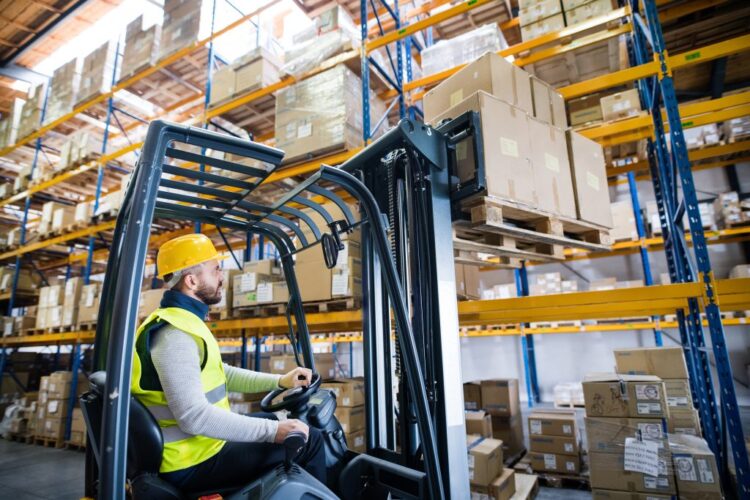Forklift maintenance is essential to extending the lifecycle of your material handling equipment and lowering long-term repair costs. As every forklift dealer in Toronto knows, tire maintenance accounts for the majority of costs associated with material handling equipment upkeep. But it doesn’t have to be that way. By adhering to these simple and manageable tips, you can significantly reduce your forklift maintenance and repair costs in Toronto.
Select the Most Suitable Tires for Your Machine and Applications
Tire selection is one of the most crucial, yet highly underrated, criteria for reducing forklift maintenance costs. When it comes to boosting long-term forklift functionality and safety measures, the right tires make a noticeable difference. Outdoor applications often take place in rugged conditions and require the proper treads to provide ample traction on different types of terrain. In contrast, indoor operations typically take place in a temperature-controlled setting with a smooth floor that works well with lighter tread options. Choosing the correct tires for your machine and applications reduces tire wear and tear, replacement frequency, and long-term maintenance costs.
Don’t Compromise on Tire Quality to Save a Few Bucks
Short-term pain equals long-term gain. It may seem counterproductive but spending a little extra money on high-quality forklift tires means spending less money down the line on maintenance and repairs. High-quality tires have excellent tread and traction as needed and they’re designed to withstand a variety of environmental factors including rough or smooth terrain, indoor and outdoor climates, and other external elements.
Provide Comprehensive Ongoing Forklift Operator Training
Ongoing forklift operator training ensures that all workers are completely up to speed on the latest training materials, in compliance with the Ontario Ministry of Labour’s safety regulations, and the technological functions of the machinery itself. This helps minimize the risk of on-the-job injuries and structural damages as a result of equipment misuse while also eliminating liability.
Regularly Perform Forklift Inspections and Maintenance
Operators should thoroughly inspect forklifts and other material handling equipment at the beginning and end of each shift as well as prior to use mid-shift. Inspections should be performed frequently and logged accurately to help identify and fix any potential mechanical issues in advance. Check the tires for tread degradation, punctures, air leaks, and loose or missing pieces. Damaged forklifts should be tagged and removed from the rotation until they’re repaired and in compliance with safety regulations.
Maintain a Clean and Organized Work Site
Cleanliness is next to godliness in all industrial settings that use forklifts. Loose objects that are left hanging off the side of storage racks and pallets or in the middle of aisles pose a series of safety hazards. Unsuspecting workers can trip and fall over various objects left on the floor, leading to injuries and the potential for a lawsuit. Furthermore, contact with sharp objects can also puncture holes inside the tires, allowing air to escape or get caught inside the tire rims and wreak havoc on the internal mechanisms of your forklift. To avoid all of these costly headaches, keep your warehouse clean and clear of debris and make sure inventory is properly stacked at all times.
Consult a Reputable Forklift Dealer in Toronto for Affordable Tire Maintenance and Repairs
NovaLift Equipment Inc. is a leading new and used forklift dealer in Toronto. In addition to buying and selling forklifts and training operators on material handling safety, we also specialize in forklift repair in Toronto. Contact us to learn more about our services and products.


